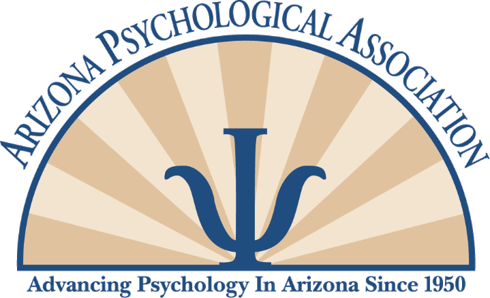This is a FREE event to honor the life and legacy of Dr. Elliot Gory. Dr. Gory specialized in severe disabilities and early childhood psychology. He was a longtime member of AzPA and mentor to many. Registration to this event is free but contributions can be made to the student scholarship fund to help send a student to the 2025 AzPA Convention in Dr. Gory's name.
Schedule
August 22, 12:00 - 1:00 pm: Intellectual and Low Incidence Disabilities, Dr. McCall
August 29, 1:00 - 2:00 pm: Autism Diagnosis for 13+, Dr. Malak
September 5, 12:00 -1:00 pm: Navigating Neurodiversity During Childhood, Dr. Burger
Intellectual and Low Incidence Disabilities: Conducting Evaluations and Therapy with Support and Empowerment
Presented by Paula McCall, PhD
Program Description
This program will provide an overview of best practices in working with individuals with intellectual and low incidence disabilities. This will incorporate three key areas: 1) evaluation considerations, 2) affirming therapeutic techniques, and 3) resources in the community for individuals and their families. The program will directly address underlying biases and assumptions about this client population, encouraging attendees to recognize and alter their own biases in order to recognize this client population as capable and responsive. Specific areas of focus will include identification of strengths even with low test profiles, use of interventions that promote self-reflection over acquiescence, and collaboration with family to support empowerment.
Program Level: Introductory
Learning Objectives:
- Identify at least one common manifestation of bias in working with clients with intellectual and low incidence disabilities.
- Explain an evaluation process that promotes strength-based interpretations in the midst of low profiles.
- Explain one therapeutic support that promotes empowerment and reduces acquiescence among clients with intellectual and low incidence disabilities.
1.0 CE credit will be awarded for attendance.
-----------
Autism Diagnosis for 13+
Presented by Amanda S. Malak, Psy.D.
Program Description
This presentation will provide an overview of Autism Spectrum Disorder (ASD), including its historical context and the DSM‑5‑TR diagnostic criteria. It will highlight variations in presentation across diverse populations, including females, BIPOC, and LGBTQ+ individuals. Attendees will learn about evidence-based therapeutic tools and supports, considerations for assessment and testing, an example diagnostic battery, and illustrative case examples.
Program Level: Intermediate
Learning Objectives:
- Identify at least three historical developments that have shaped the understanding of ASD and the DSM-5-TR diagnostic criteria.
- Describe two or more variations in presentation across diverse populations including females, BIPOC and LGBTQ+ individuals.
- List three evidence-based therapeutic tools and supports and considerations for assessment and testing.
1.0 CE credit will be awarded for attendance.
-----------
Navigating Neurodiversity During Childhood - Best Practice Guidelines for Assessment and Intervention in Childhood Autism Spectrum Disorder (ASD)
Presented by Sarah Burger, Ph.D., ABPP
Program Description
This CE session is designed to build upon the previous talk in the series. In this session, we will begin with a brief review of diagnostic criteria for autism spectrum disorder (ASD), followed by a candid discussion of what ASD is and what it isn't (with a nod to the unfortunately large amount of potentially misleading information presently available about ASD on the internet!). The session will then commence with a cursory review of best practice guidelines for the assessment of ASD in children, followed by a more detailed discussion of evidence-based interventions that have shown to be useful in populations of children with ASD. Finally, a role for family psychoeducation will be punctuated, with a forecasting of future support needs that can be highlighted for the family members of children who are diagnosed with ASD. The session will conclude with provision of possible community organization support options and other resources (at the local and global level) for attendee consideration.
Program Level: Introductory
Learning Objectives:
- Identify at least one processing system that appears to operate differently in ASD than is 'typical,' providing at least 1 accompanying example of a common processing difference for children with ASD relative to so-called neurotypical children.
- List at least one critical component of best-practice autism evaluations in childhood.
- Identify at least one evidence-based intervention that has been shown to provide benefit to children on the autism spectrum.
- List at least one support consideration for ASD children during their transition to adulthood.
1.0 CE credit will be awarded for attendance.

